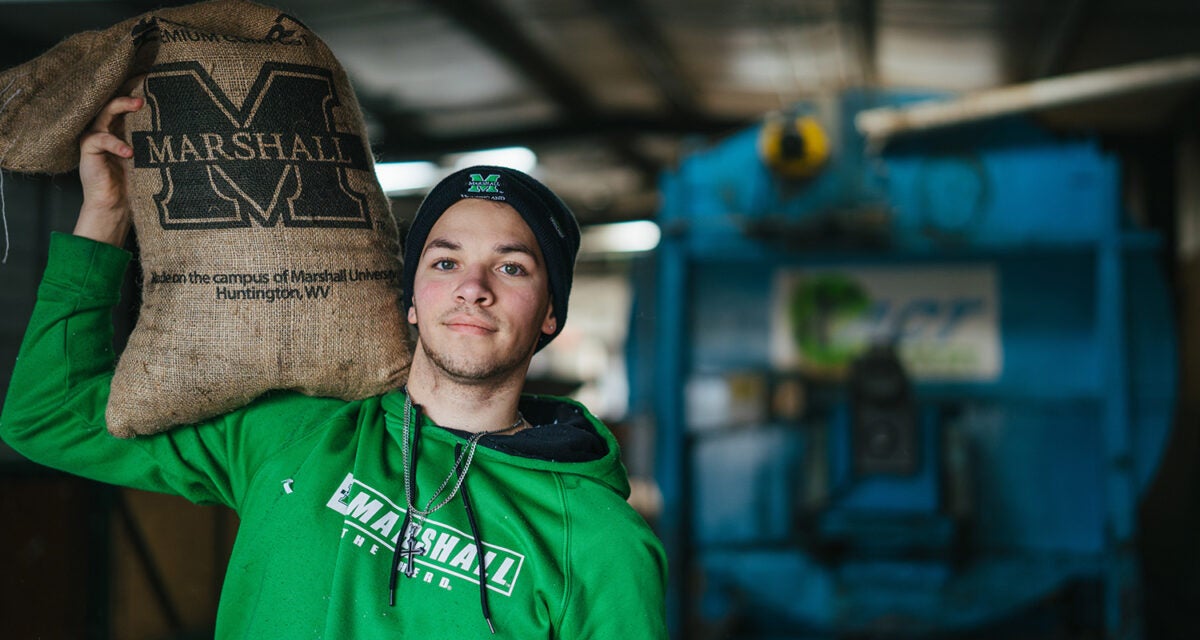
Marshall University Composting Facility
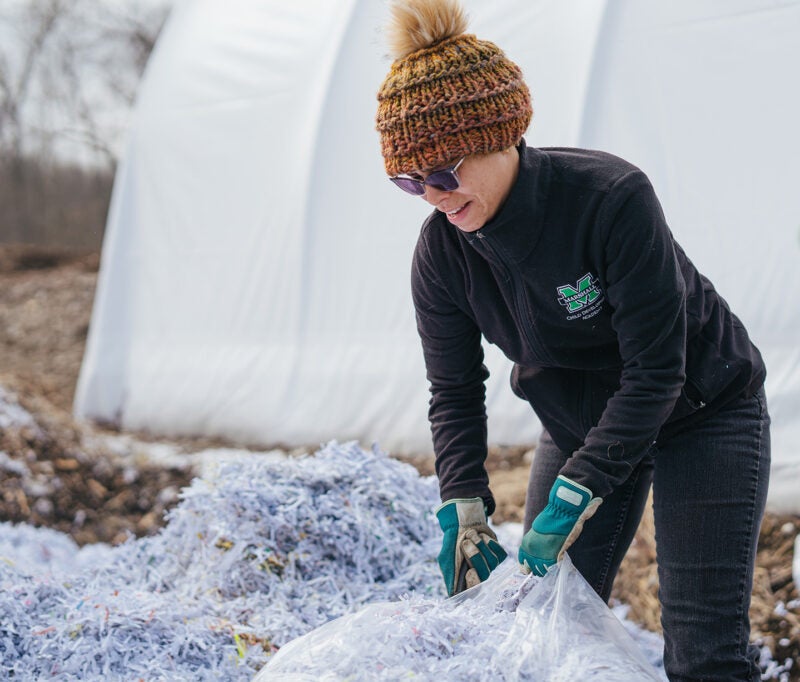
Marshall University’s Composting Facility, established as West Virginia’s first commercial composting operation, began in 2018 with the goal of reducing waste and creating valuable soil amendments for campus use. After receiving multiple grants and generous community donations, the facility was completed in late 2022. Official composting operations began in January 2023, furthering the university’s sustainability objectives.
The facility plays a key role in Marshall’s environmental efforts by transforming organic waste into premium compost, used to enhance the campus landscape and promote sustainability. As a leader in innovative waste management in West Virginia, the facility diverts food waste, lawn clippings, shredded paper, and cardboard from landfills, converting them into high-quality compost.
Since its opening, the facility has successfully diverted over 50,000 gallons of food waste and 5 tons of paper, helping reduce the university’s carbon footprint by cutting down on waste haul costs and lowering carbon dioxide production by 108 net tons.
Benefits of Composting
Eases the burden on overcrowded waste facilities.
Prevents the production of this potent greenhouse gas, which is produced by organic waste in landfills.
Provides natural nutrients that enhance plant growth on campus and in local communities.
Advances Marshall University’s commitment to being a green, eco-conscious institution.
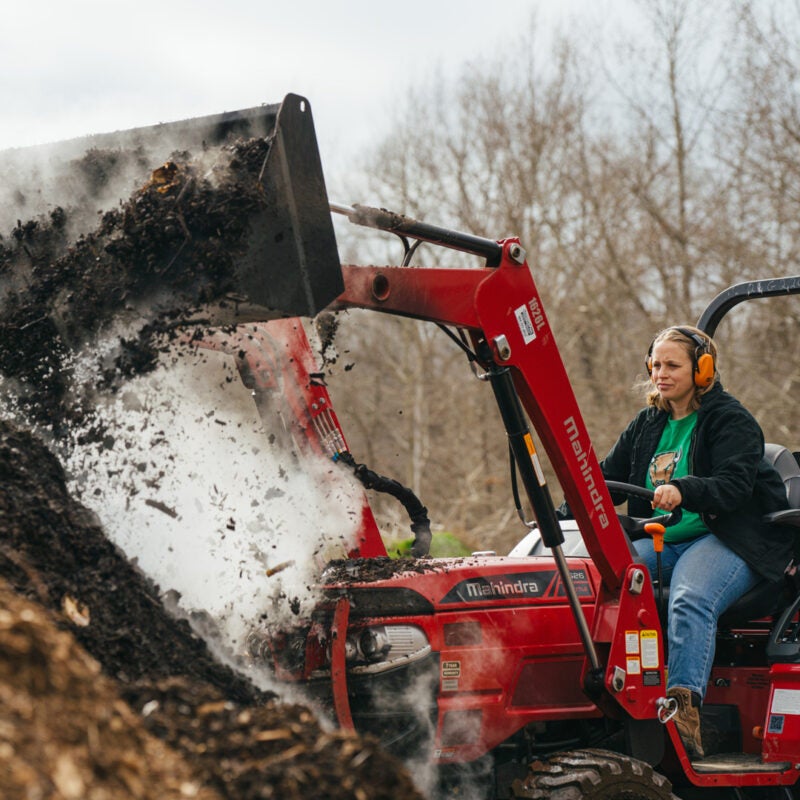
What is Composting?
Composting is a natural process that breaks down organic materials like food scraps, yard waste, and other biodegradable items into nutrient-rich soil. By composting, we reduce landfill waste, decrease greenhouse gas emissions, and create a sustainable resource that enhances soil quality.
Our Goals
- Process campus waste to produce compost, available for sale.
- Serve as a laboratory and classroom for biology, agriculture, and business courses.
- Provide composting workshops and high-quality compost to the public.
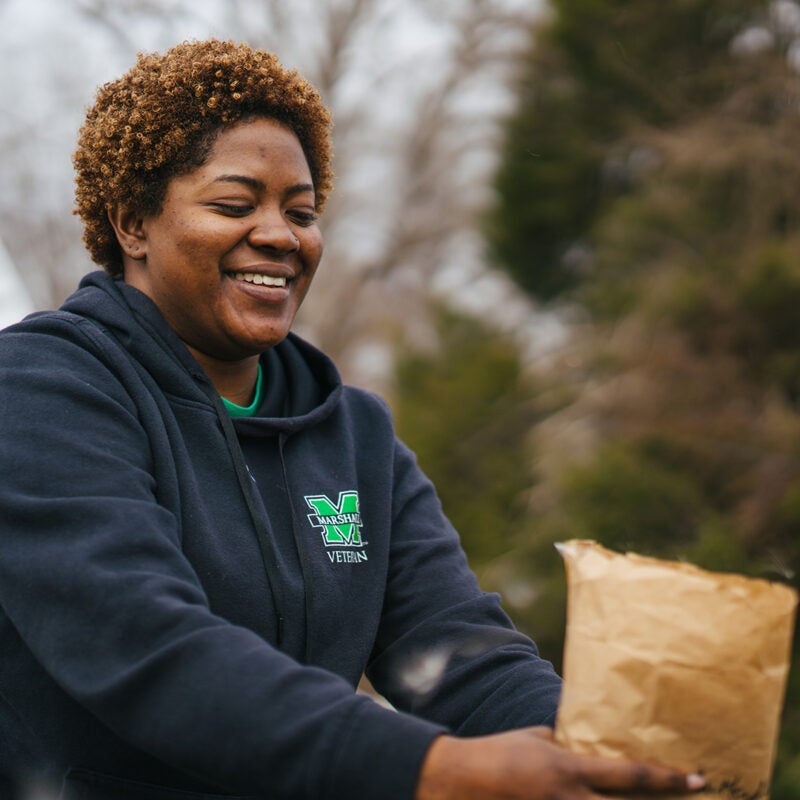
Our Facility
Location:
1010 Norway Ave, Huntington, WV
What We Compost:
- Food scraps
- Food-soiled paper and office paper
- Yard debris
- Cardboard
- Horse manure from Heart of Phoenix Horse Rescue
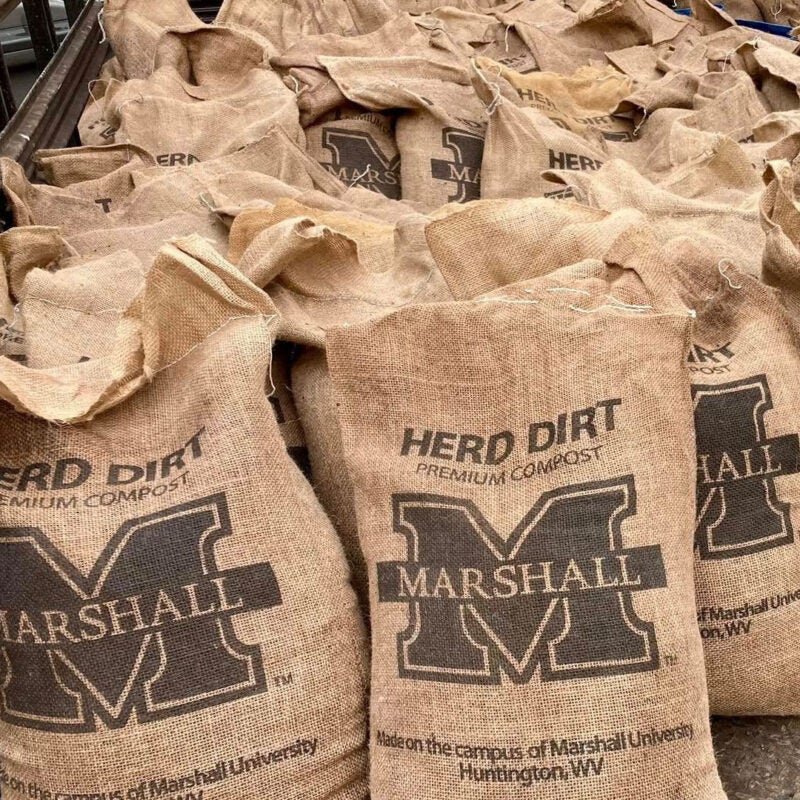
Our Products
- Compost Tea: A nutrient-rich liquid created through an infusion process that extracts beneficial microorganisms from compost, enriching soil with vital bacteria, fungi, and other organisms.
- Worm Castings: A naturally produced fertilizer from earthworms, known as vermicast. This nutrient-rich waste enhances soil health and fertility.
- Herd Dirt: Our premium compost, sold by the bag or scoop, helps retain moisture in soil, supports beneficial organisms, and adds essential nutrients.
You can find these products at the Wild Ramp and during select campus Market Days.
Contact Us
For more information about how to participate in the composting program or to learn more about the process, contact the Marshall University Sustainability Department:
- Phone: 304-696-2992
- Email: bemarshallgreen@marshall.edu
